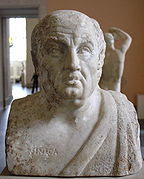 I like history, and since tomorrow is Halloween, I thought you might be interested in how Halloween came to be.
I like history, and since tomorrow is Halloween, I thought you might be interested in how Halloween came to be.
A long, long time ago, in a land far, far away there lived a people named the Celts. The Celts originated in what is now Europe but later migrated to what is today Ireland, Scotland, Wales, and parts of England. They later migrated from Ireland to Boston, Massachussetts where they founded an NBA franchise that would go on to win 17 championships under such greats as Bill Russell, John Havlicek and Larry Bird.
The Celts believed in a spirit called Samhain, meaning “Lord of Death.” At the end of their year (October 31), they believed Samhain came to the earth to collect the spirits of all the people who died during the year and lead them to the afterlife. They also believed demonic spirits roamed the earth.
To appease the evil spirits, or trick them, the Celts would dress up in costumes and masks to look like demons, hoping the real demons would mistake them for one of their own and not destroy their crops or act in other uncivil ways toward them. Apparently the Celts didn’t believe these evil spirits had good eyesight, or maybe they are a lot like people today and didn’t believe what they were celebrating at all.
In the eighth century Pope Gregory III, in an effort to snuff out the pagan celebration, moved All Saints Day from May 13 to November 1, making October 31, “All Hallows Eve.” Unfortunately this was about as effective as the Inquisition.
Later the Irish version of English, as it is, resulted in “All Hallows Eve” being shortened to “Halloween.” In the 1840’s, the Irish brought Halloween with them as they immigrated to the United States.
Today, Halloween is the second biggest holiday in the United States in terms of money spent. Just two years ago, Americans spent $5.1 billion on Halloween, more than Easter, Mother’s Day and Thanksgiving.
So, there you have it. The history of Halloween. If you have any other questions, please direct them to the Celts’s front office in Boston. GS



